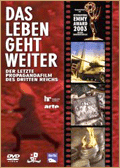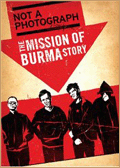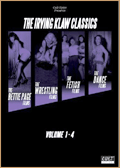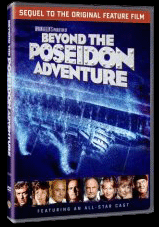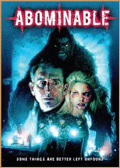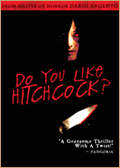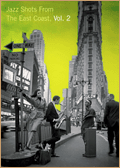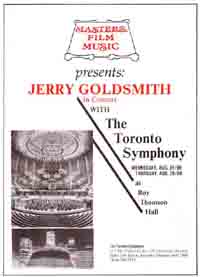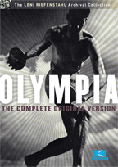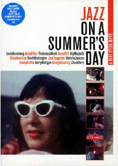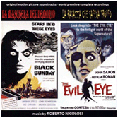 That's the alliteration for when another zoom-happy shot in a Mario Bava film (okay, in his later films) stop the narrative dead so we can revel in the excess of a zoom lens cranked back-and-forth, and so the cult director can tell us the lava is hot-Hot-HOT! or the evil Baron is bad-Bad-BAD!
That's the alliteration for when another zoom-happy shot in a Mario Bava film (okay, in his later films) stop the narrative dead so we can revel in the excess of a zoom lens cranked back-and-forth, and so the cult director can tell us the lava is hot-Hot-HOT! or the evil Baron is bad-Bad-BAD!Unlike the visual touches in Bava's films, the music scores tend to reflect a peculiar mélange of horror, black humour, and cheeky melodrama that often make it clear Bava knew his work was supposed to be fun and shocking, and that we should celebrate some of the ridiculous horror conventions.
A genre pioneer, a clever and instinctive editor (just watch the breakneck pacing of Caltiki), and master cameraman, even a lesser film like Five Dolls for an August Moon is worth a peek because there's always a moment that's clever, and transcends the ridiculousness for a short few beats.
The sound of Bava's world was conveyed by a large body of composers, many some of the finest Italian underdogs who never reached international acclaim, but whose musical contributions couldn't be separated from their films. Some ideas might not have worked too well, but their scores are great little horror gems that deserve a release for connoisseurs of horror film music.
To close out 2006, we've assembled an eclectic mix of titles, with Bava as the sonic headliner. In the revamped soundtrack section, we've added reviews for DigitMovies' must-have volumes in their Mario Bava Soundtrack Anthology: Volume 1 (La Mashera del demonio / Black Sunday + La ragazza che sapeva tropp / The Evil Eye), Volume 2 (La Frusta Ell Corpo / Whip and the Body + Sei Donne per l'assassino / Blood and Black Lace), Volume 3 (Ecologia del Delitto / Bay of Blood + Gli orrori del castello di norimberga / Baron Blood + Cani arrabbiati / Rabid Dogs), and Volume 4 (I Vampiri + Caltiki + Lisa e il Diavolo / Lisa and the Devil "To Mirna" theme).
To enhance these titles, we've also added DVD reviews of The Girl Who Knew Too Much, and I Vampiri to our archives, with more Bava titles to follow.
Additionally, to contrast my recent MFTM column regarding Stelvio Cipriani films on DVD, a review of Gianni Ferrio's score for Luciano Ercoli's nutty Death Walks at Midnight / La Morte accarezza a mezzanotte (1972) has also been added. Ferrio's music, released by Easy Tempo/Right Tempo on CD and LP, matches Ercoli's crazy giallo to a T, and the composer's work has slowly crept into the soundtrack market, albeit a bit too quietly. Ferrio's Midnight theme shares some striking similarities with the Quincy Jones-Alan & Marilyn Bergman song "Maybe Tomorrow," written for the 1969 Peter Yates drama, so we've added a review of the original LP to our archives.
We've also added a CD review for David Julyan's chilling score for The Descent (released by Cooking Vinyl) to compliment our DVD review of Maple's special edition DVD, which features all of the goodies from the 2-disc UK release of Neil Marshall's terrifying cave-CHUD film from 2005.
Also newly uploaded are reviews for the funny buddy cop riff Bon Cop, Bad Cop, which Alliance-Atlantic released on DVD in a 'bilingual version'. (The soundtrack has the actors exchanging surreal theories, semantics, and insults in chunks of English and Quebecois argot, which elevated Eric Canuel's actioner from mundane to pretty fun.)
Hopefully the success of Bon Cop, Bad Cop will convince distributors to make French-language films more widely available in Canada, since the country's peppered with film fans, Anglophone and bilinguals, who get pretty annoyed when a title that's generated some buzz beyond la belle province is ignored. The search for a French language flick becomes equally frustrating when it's available online in the U.S., and local merchants haven't a clue as to who carries it in Canada. (Oh, it happens.)
Sometimes, however, it's Alliance-Atlantis, Christal, or Maple that carry some of the high-profile titles, and Maple's recent disc of Luc Jacquet's dual penguin docs in Once Upon a Time in Antarctica pairs two titles even the IMDB hasn't yet listed.
Jacquet, whose March of the Penguins became a hit doc in 2005 (and ignited a wave of penguin-themed flicks), also directed a series of shorter docs set in the planet's freezer, and Maple's DVD contains Rush Hour in Antarctica/ Antarctic Printemps Express, and Topsy-Turvy Penguin, both of which we've covered.
Also in tune for the Christmas holiday season is the Raymond Briggs classic, The Snowman, which Sony fleetingly released as a standalone DVD. Featuring a depressingly beautiful score by Howard Blake, it'll either move or annoy viewers with its charm and cutesiness, and the gorgeous animation that earned it an Oscar Nomination in 1982.
Coming shortly: Part 2 of our detailed profile of filmmakers Carl Schmitt & Mark Cairns, and their doc Das Leben geht weiter/Life Goes On !
Technorati Tags: DVD Reviews, Soundtrack Reviews


